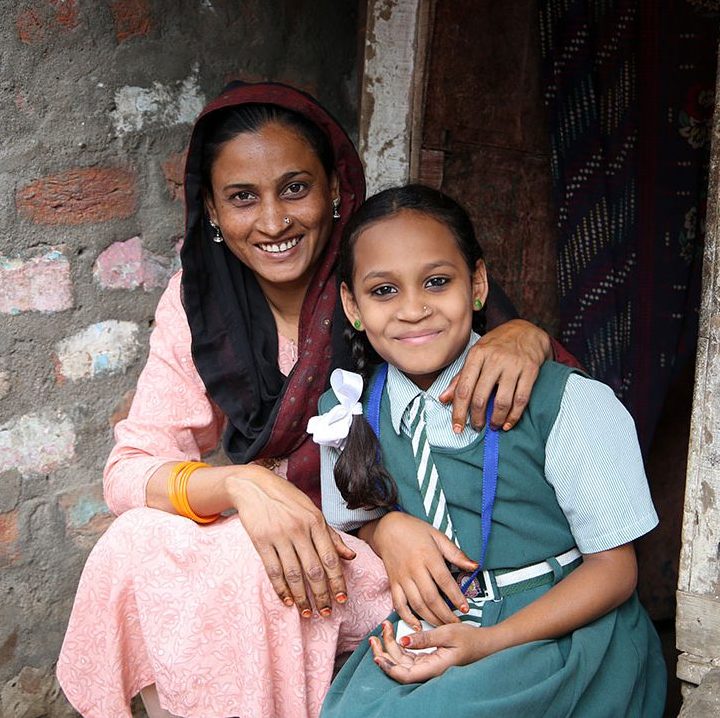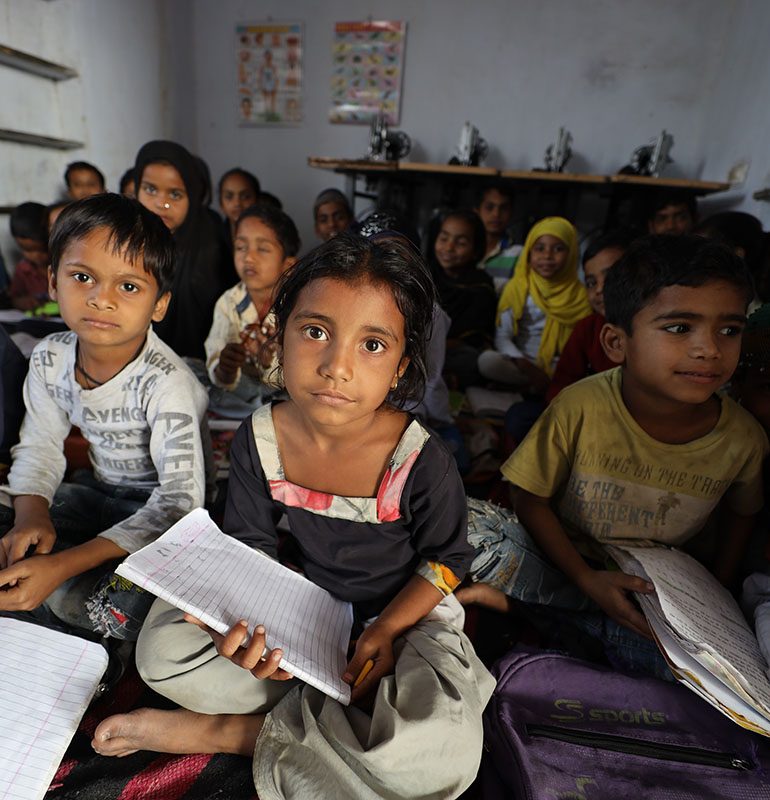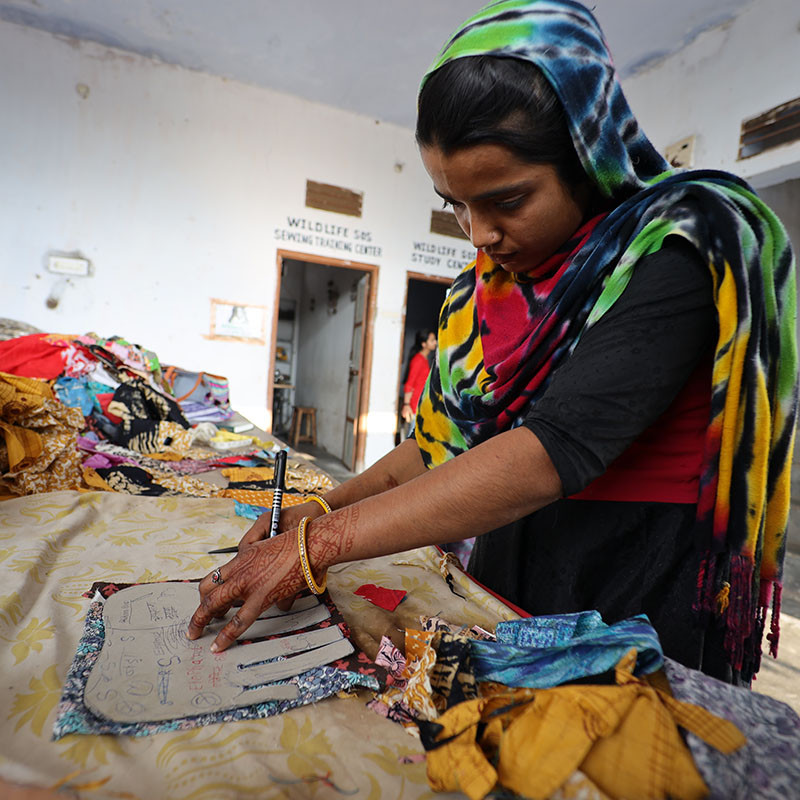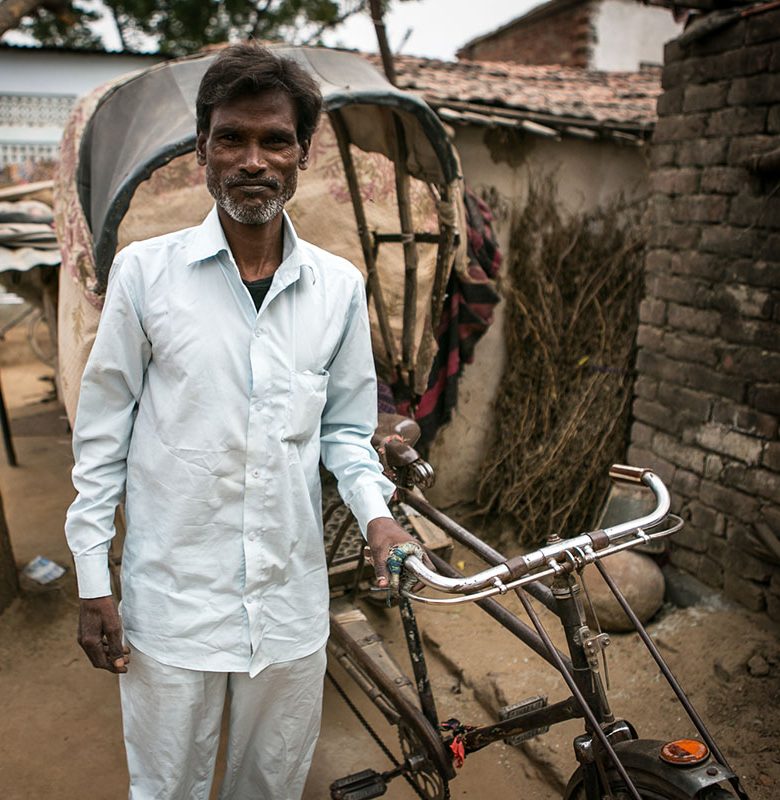
In 2002, Wildlife SOS started work on the rehabilitation of the Kalandar communities (originally gypsy communities with a highly nomadic lifestyle were famous for their mastery over animals) through education and an alternative livelihood program as an extension of the dancing bear rescue project. By empowering them to earn incomes (through dignified and legal means) and improve their living standards, we had shown our commitment to providing them a life of quality. Over 3,500 families spread out through six states and over 15 villages; have received support to become economically self-sufficient over a period of 2 decades. Our substantial efforts have helped us in bringing a significant part of the community into the mainstream. Encouraging the community to accept alternate means of earning and has contributed towards pulling them out of the regressive cycle of poverty, illiteracy, child marriages and exploitation.

Objective: To enable the Kalandar community to have self-sustaining alternative livelihoods after giving up their bears; to allow their children to have proper education and be sensitised about animals as well as to empower the Kalandar women to have additional financial security by making women secondary income earners for their families.
Location/Region: Rajasthan, Uttar Pradesh, Madhya Pradesh and Haryana
Milestones:
Timeline:
White papers, publications, or research:
DANCING BEARS OF INDIA** (Published in August 1997)
By Geeta Seshamani & Kartick Satyanarayan (Co-founders, Wildlife S.O.S)
Project Needs:

In order to ensure the success of any conservation effort it is absolutely essential to have the cooperation and more so the active support of communities affected by the protection of a species or habitat. Wildlife SOS firmly believes that to save bears and other endangered species in India we need the support of millions of people who live in and around wildlife habitats and depend on them for their survival – and we can only gain this support if we respect, understand and are sensitive to their needs and aspirations.
In 2002, Wildlife SOS started work on the rehabilitation of the Kalandar communities (originally gypsy communities with a highly nomadic lifestyle were famous for their mastery over animals) through education and an alternative livelihood program as an extension of the dancing bear rescue project. Over the years working with these communities, living in their villages, we had gained their trust. By empowering them to earn incomes (through dignified and legal means) and improve their living standards, we had shown our commitment to providing them a life of quality. Over 3,500 families spread out through six states and over 15 villages; have received support to become economically self-sufficient over a period of 12 years.
Our substantial efforts have helped us in bringing a significant part of the community into the mainstream. Encouraging the community to accept alternate means of earning has contributed towards pulling them out of the regressive cycle of poverty, illiteracy, child marriages and exploitation. Their overall living standard has improved as well.

Wildlife SOS recognizes that compassion and understanding is crucial to saving wild animals and protecting the habitats they need to survive. Wildlife SOS, therefore emphasizes the need for conservation education. We work in both rural and urban communities to educate people about the surrounding environment and animals. Education can take many forms, everything from showing people the little things they can do to help the environment to explaining techniques for avoiding human/wildlife conflicts to local communities, each bit helps.
Wildlife SOS understands that the challenges that they face are dynamic. Impoverished human communities do not often have the luxury of informed choice in how they earn the living that feeds their family. With this in mind, Wildlife SOS also funds the education of children from Kalandar communities. This enables the people to break cyclical poverty and ignorance. Education empowers future generations to live and thrive in mainstream society. We believe it is absolutely essential that children have access to quality education. Wildlife SOS supports the education of over 1,360 Kalandar children. We assist with school admissions, paying fees and providing books, stationary, uniforms and schoolbags to equip these children to follow their dreams and avail the opportunities life has to offer them. Through their growth and learning, they themselves further contribute to improving living standards of the community as a whole. Education is the beginning of charting a positive cycle for India’s impoverished and under served communities.

Everywhere in the world women face cultural and societal pressures. But women in impoverished communities in India are up against extraordinary challenges. The tradition of child marriage, reinforced by poverty, instability, and lack of resources, sees parents wedding off young girls in order to reduce the financial burden on their struggling families. The practice of child marriage is not unique to any one country in the world, nor is it specific to a particular religion or community. India has more child brides than anywhere else in the world. It is estimated that up to 47% of the nearly 600 million child marriages globally involve little children under the age of 18!
Wildlife SOS has designed and carried out initiatives to empower women belonging to Kalandar communities in the states of Rajasthan, Madhya Pradesh, Uttar Pradesh and Karnataka. Women empowerment initiatives help provide additional financial security by making women secondary income earners for their families. Over 1,500 Kalandar women have been given vocational training or seed funding to start businesses. Our organization carries out capacity building and skills’ training of women as well as generating awareness and providing support to discourage child marriages. Wildlife SOS provides women with seed funds, extensive technical support services, including training and extension assistance, to create micro enterprises. Where necessary, we provide marketing assistance and linkages with suppliers and buyers.

At Wildlife SOS, we recognize that it is of the utmost importance to assist the Kalandar community in identifying an alternative means of livelihood to ‘dancing’ bears. The same goes for an community which is deriving its subsistence from any abusive practice. Alternative employment reduces dependency on working animals and wildlife. We try to impart the value in protecting the natural environment.
We conducted a study to assess the needs of the Kalandar tribe and to suvey their preferences for alternative employment. Till date, over six hundred Kalandar men have opted to voluntarily surrender their bears and claim the Wildlife SOS rehab package. Kalandar families receive rehabilitation packages based on submitted applications based on each individual’s entrepreneurship skills and personal vision.
Our assistance may take the form of purchase of a handcart, a small “khoka” or wooden stall / shop; or provision of a bicycle from which to sell goods in the local rural areas. We can help with the purchase of a cycle rickshaw, an auto rickshaw or with providing seed funds for initial stocks. Again we help with consulting advice to nurture the proposed venture. By assessing the individual’s capacity to deal with basic market forces, we can make provisions to forward further funds where necessary, for expansion and stabilization of their businesses. However, Wildlife SOS did not want the training and seed funds to become an incentive to further poach the bears, thus, the entire community was included in the efforts and everyone could apply for seed funds or educate their children.